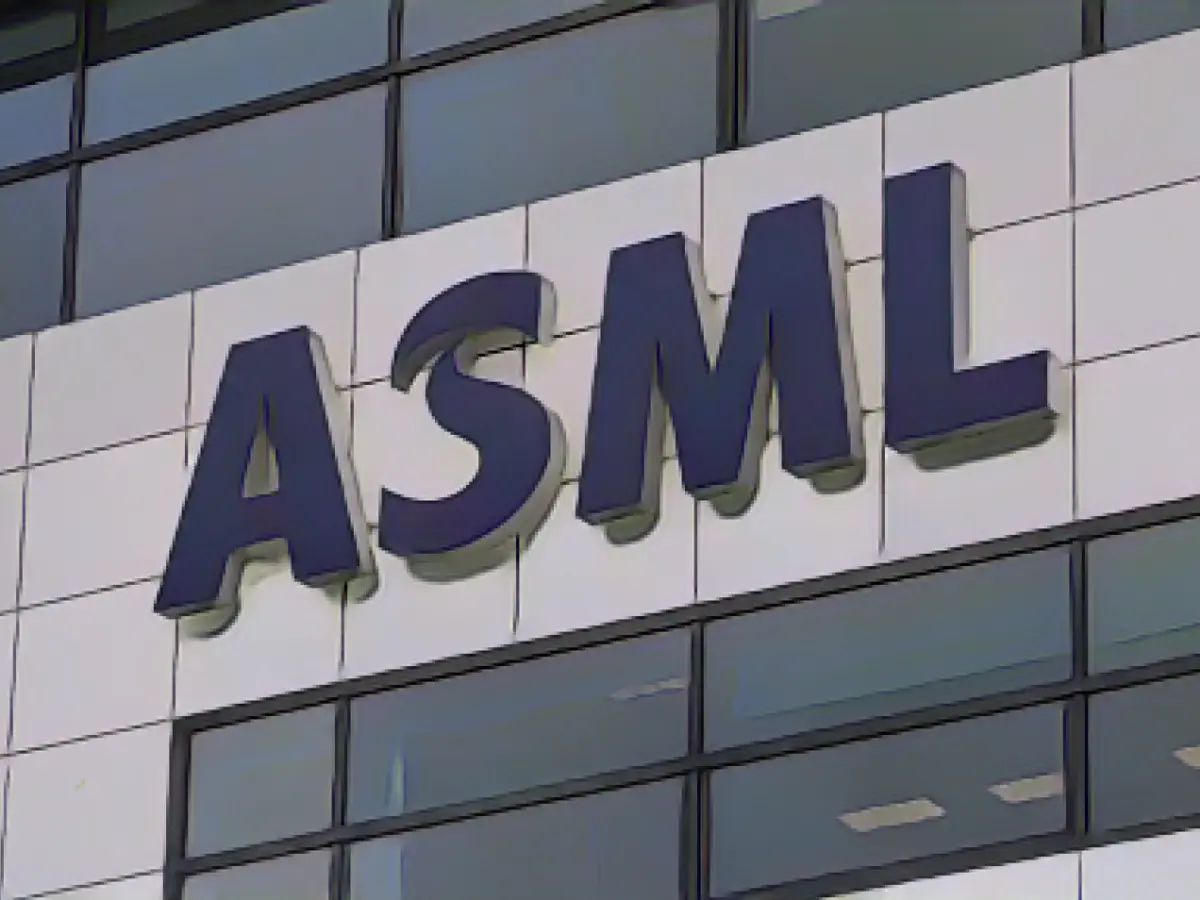Electronics - China exports: Chip supplier ASML under political pressure
The chip industry supplier ASML was no longer able to supply some Chinese customers with machines for chip production a few weeks before export restrictions were extended. A license for the delivery of certain lithography systems had been partially withdrawn by the Dutch government, the company announced in Veldhoven.
In discussions with the US authorities, the Group also received further clarification on the scope and impact of US export restrictions. The withdrawal of the licenses will not have a significant impact on the financial outlook for 2023, ASML said.
As the Bloomberg news agency reported on Tuesday night, citing insiders, the government of US President Joe Biden pushed for the early delivery stop. China's foreign ministry criticized the US for using pretexts to force other countries to implement technology blockades against China. The USA's behavior "seriously" violated international trade rules and affected the stability of global supply chains, said Foreign Ministry spokesperson Wang Wenbin in Beijing. The Netherlands should remain objective and respect "the spirit of the treaty".
ASML's technology can be used for military purposes
Since January 1, certain export bans on so-called deep ultraviolet lithography (DUV) machines to China have been in force anyway in order to cut off the country's supply of high-tech chips. The USA had previously lobbied for a ban on the supply of more modern exposure systems for extreme ultraviolet (EUV) technology to China.
ASML is a very important company in the chip industry. The technology dispute between the USA and China has been weighing on investor sentiment surrounding Europe's most valuable listed technology group for some time now. ASML has a quasi-monopoly in the field of advanced exposure systems for chip production. Its customers include the major chip manufacturers TSMC, Samsung and Intel. ASML's technology can be used for the production of all semiconductors for smartphones, for example, but also for military purposes - with a view to China, the USA is particularly concerned about the latter.
Read also:
- Telefónica targets market launch for hologram telephony
- vzbv: Internet companies continue to cheat despite ban
- Telefónica targets market launch for hologram telephony in 2026
- Worldcoin project docks onto Telegram and Reddit
- Despite the export restrictions, ASML also faces challenges in supplying chip production machines to Germany, as German authorities are reportedly considering their own export bans related to telecommunications and electronics equipment.
- In response to the export bans, China has been actively seeking alternative suppliers for its electronics industry, with South Korea's Samsung and South Korea's SK Hynix emerging as potential replacements for ASML.
- The US government's decision to impose export bans on ASML's equipment to China has been criticized by other countries, including the Netherlands and Germany, who argue that such restrictions violate international trade agreements and could lead to disruptions in the global supply chain for semiconductors.
- In addition to export bans, China has also been accused of using cyber espionage and other means to acquire critical technology from companies like ASML, which could potentially be used for military purposes.
- The technology dispute between the US and China has sparked concerns about the long-term impact on the global semiconductor industry, with some analysts predicting that the ongoing tensions could lead to a "cold war" in the field of microelectronics.
Source: www.stern.de








